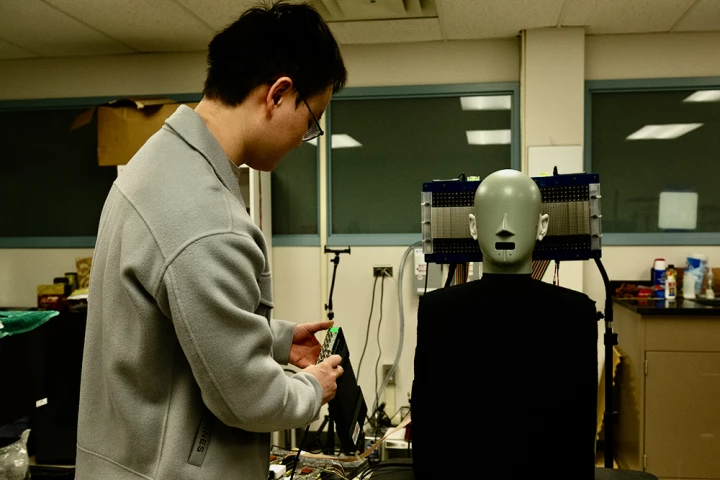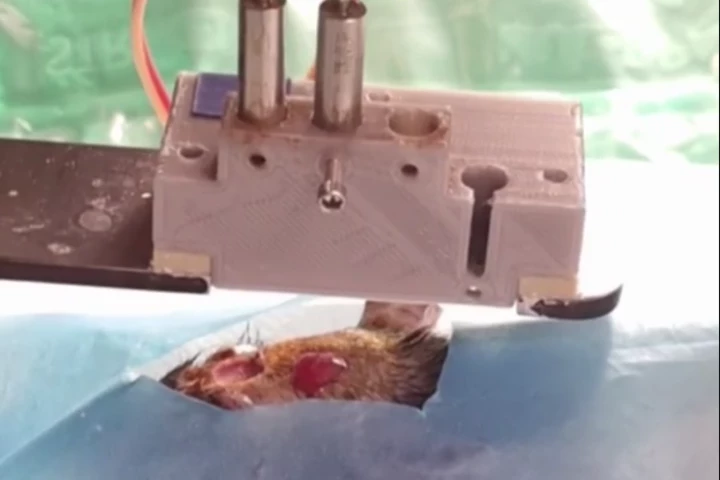Pennsylvania State University
-
Long before the Inka ruled the Andes, the Tiwanaku civilization carved out one of the region’s earliest and most influential societies. Then, about a thousand years ago, it vanished, leaving behind stone ruins and swirling mysteries.
-
Researchers have developed a 3D-printable electrode that looks like a single strand of human hair and measures brain activity more reliably than the current method used to diagnose things like epilepsy and sleep disorders.
-
It's not uncommon for patients to hide their true emotions from their caregivers – or even from their own conscious selves. An experimental new facial "sticker" could help, by detecting and relaying information on its wearer's present state of mind.
-
Imagine being able to listen to music or other audio that no one else can hear, without having to wear headphones. Doing so is now possible via so-called "audible enclaves," which already exist in functional prototype form.
-
Scientists have accidentally discovered a particle that has mass when traveling in one direction, but no mass while moving in a different direction. Known as semi-Dirac fermions, particles with this bizarre behavior were first predicted 16 years ago.
-
Binge-drinking in early adult years fundamentally changes how brain neurons communicate, in what scientists equate to a faulty gas pedal in a car that needs more pressure applied to "go." This type of dysfunction is also seen in Alzheimer's disease.
-
Aliens might be able to detect us from the radio signals we beam to Mars to control our rovers there. Astronomers have now listened in on the nearby TRAPPIST-1 system to check whether aliens are chattering between their own neighboring planets.
-
When it comes to life expectancy in high-income English-speaking countries, a new study has found that America has sat in last place since 2001. Australia remains the best performer and, the researchers say, should serve as a model for how the US can do better.
-
Researchers have identified an enzyme that's key to updating existing memories with new information, a process that declines naturally with age. Blocking the enzyme reduced memory impairment, opening the door to developing treatments for age-related memory problems.
-
A new technique may make it easier to selectively breed crop plants for better, deeper roots. The non-destructive process involves quickly checking a plant's leaves to see how far down its roots go into the soil.
-
In many cases nature has better versions of our tech. The newest example comes from a common insect in your backyard, which makes nanoscale soccer balls that hide it from predators – inspiring new, better UV protection and maybe even cloaking tech.
-
In a world first, researchers have printed multi-layered, living skin directly onto significant injuries in rats for scar-free skin repair. It's not sci-fi – they're genuinely 3D-printing skin (and possibly hair) right into damaged areas.
Load More











